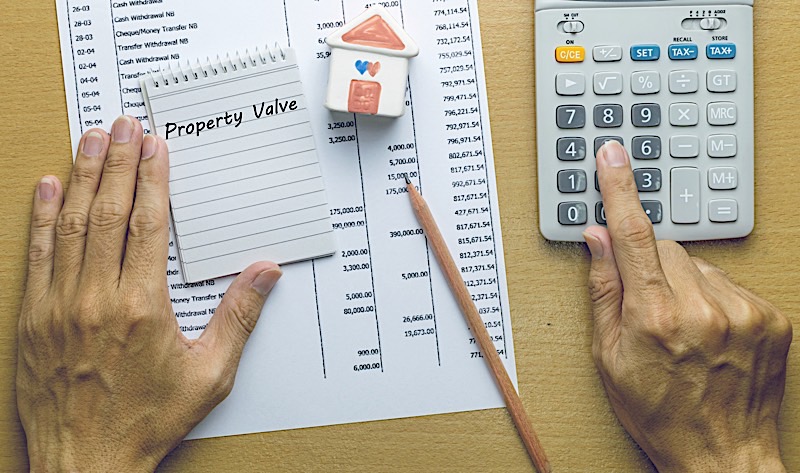Tax Deductible Rental Property Expenses
By Than Merrill
At the very least, passive income properties are one of the greatest retirement savings vehicles in today’s investing landscape. The passive nature of rental properties, or at least their potential to be passive, awards savvy investors the ability to make money while expending minimal effort. There really isn’t much more you could ask for out of a sound investment.
It is worth noting, however, that, in addition to rental income, passive income properties offer at least one more significant advantage: a tax shelter. Tax deductible rental property expenses, to be exact, can significantly reduce a homeowner’s taxable income and save them a lot of money when Uncle Sam comes to collect. So much so, in fact, that many investors covet rental properties more for their tax benefits than their ability to produce monthly rent checks.
Rental Property Deduction Checklist
The expenses incurred from operating a rental property for business purposes may be deducted from your rental income obligations come tax time. Having said that, it’s entirely up to the investor to know which expenses can be deducted. The following list represents the most common rental property expenses investors may deduct from their taxable income:
- Advertising: Any advertising expenses incurred for attempting to keep the rental property in operation can be written off. That means everything from “For Rent” signs to newspaper ads can be added to your rental property deduction checklist.
- Auto & Travel Expenses: Rental property owners may deduct auto and travel expenses if, and only if, you incur them by collecting rental income or to manage, conserve, or maintain the subject property.
- Cleaning & Maintenance: Any necessary costs incurred to clean or maintain the property can be written of, or deducted from your taxable income. That means rental property owners can deduct the cost of hiring someone to maintain the yard or clean the interior. Repairs, on the other hand, may be written off if you aren’t forced to capitalize the expense.
- Commissions: As part of the basis of the property at the time of purchase, any sales commissions expensed at the time of the sale may be deductible.
- Depreciation: Rental property depreciation remains, to this day, one of the greatest tax benefits awarded to rental property owners. As it turns out, the property itself is viewed as a business expense, one that can be incrementally written off over the course of 27.5 years (the amount of time the I.R.S. has deemed to be the lifespan of a single-family home. That means rental property owners can write off a portion of the original cost each year for 27.5 years.
- Insurance: The I.R.S. will allow rental property owners to deduct a portion of the premium payment in a given year.
- Interest: As one of the most familiar deductions, rental property owners can deduct the amount they pay in mortgage interest each year from their taxable income.
- Legal & Other Professional Fees: Both legal and professional fees incurred from buying and maintaining the property may be deducted in the year they occurred.
- Management Fees: Rental property owners that opt to hire a third-party property management company may write off the cost of their services.
- Utilities: Utilities like water and electricity, or more importantly the costs incurred to keep them on, can be deducted from a rental property owner’s taxable income in the year they took place.
These expenses are in no way representative of every deduction awarded to rental property owners, but they are the most common. And, unfortunately, learning what the I.R.S. deems an acceptable deduction isn’t as straightforward as many would assume. It is best to let the I.R.S. decide what qualifies as a rental property expense. Hire a tax professional to make sure you are deducting the right expenses come tax time.
[ Thinking of buying a rental property? Get a FREE downloadable copy of our “Essential Contract Pack For Cashflow Real Estate Investors” ]

Rental Property Operating Expenses
Rental property operating expenses, otherwise known as the costs incurred to keep a property operational, vary significantly. As I alluded to above, rental property operational expenses can take the form of just about anything required to keep the property operational and collecting rent, from advertising and legal fees to transportation costs and maintenance.
The I.R.S. is constantly changing their definition of deductible rental property operating expenses. As such, never assume the money you spend on keeping your rental property up and running is automatically deductible.
Rental Property Tax Calculator For Income
Any rental property producing rental income is required to report it on their taxes. The I.R.S. will, therefore, expect landlords to report their taxable rental income, which begs the question: How can landlords determine their taxable rental income? The answer is simple: hire a tax professional. Only a trained tax professional will ensure you are calculating your own taxable rental income properly. However, if you want to do it yourself, here’s a great resource to get the ball rolling. If for nothing else, a rental property tax calculator is a great place to start.
Answering Your Questions About Rental Property Tax Deductible Expenses
1. What is considered rental income?
Rental property income is essentially any payment you receive in return for the use or occupation of your rental property. Not surprisingly, the most common form of rental property income is, well, rent payments. The rent payments you receive from tenants are a source of rental income. It is worth noting, however, that rental income consists of more than just collected rent checks. Advance payments, for example, are also a form of rental income (include advance rent in your rental income in the year you receive it regardless of the period covered). Security deposits, for that matter, are a form of advanced rent; however, you only claim it if you actually keep it. Rental income will also include any money made when a tenant cancels their lease and is forced to pay a cancellation fee. And that’s not all: property services received, as a form of payment, must be translated into a fair market value and added to your rental income.
2. How do I report rental income and expenses?
Your rental income and expenses will all be recorded in the year they were incurred. Generally speaking, rental property owners will report their income and expenses on Form 1040, Schedule E, Part I. If you have more than three rental properties, however, you may need more than one Schedule E. If that’s the case, simply complete and attach the necessary number of Schedule E forms. The respective forms will instruct you to fill out each property’s street address and some additional info on each. To be clear, however, you should always work with a tax professional to make sure you are reporting correctly.
3. What rental property expense records should I keep?
To put it simply: all of them. The more records you have on your income, expenses and deductions, the better. Not only will keeping everything documented allow you to accurately monitor the status of your rental property, but it’ll make preparing for tax time a lot easier. That said, maintain good and organized records of everything. Pay special considerations to income and expenses, as each are necessary to deduct from your tax obligations. What’s more, those that can’t provide the correct evidence may find themselves being audited and subject to additional taxes and penalties.
4. Are security deposits taxable?
To be clear, security deposits are considered a form of rental income, but I digress. The I.R.S. clarifies security deposits as advanced rent, which should be included in your income when you receive it. However, do not include the security deposit in your income if you don’t intend to keep it. In other words, security deposits are only included in your taxable income if you decide to keep them; not if you return them to the tenant.

Understanding how to navigate rental property expenses and income can make the difference between a good investor and a great one. Please feel free to use this primer as a starting point for your own tax period. However, as always, be sure to consult a tax professional. Only then will you be certain that you are moving forward accordingly.
Key Takeaways
- The tax benefits of owning a rental property are only going to present themselves when homeowners know what to look for.
- Maximizing deductibles can be a great way to increase your bottomline as a real estate investor.
- Understanding how to navigate rental property income and expenses can make the difference between a good investor and a great one.